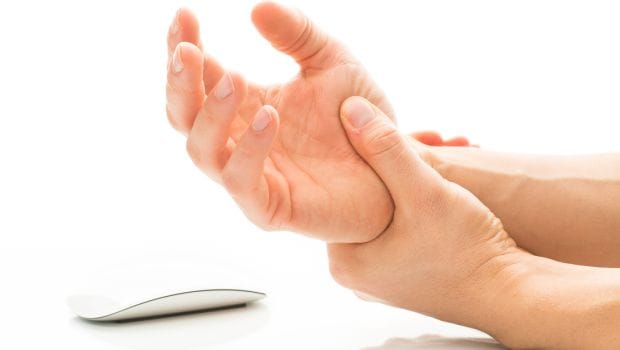Water retention is a process which results in buildup of excess fluids in your body. Water retention can occur in the circulatory system or within tissues and cavities.

Cutting down on salt intake can reduce water retention
HIGHLIGHTS
- Water retention can cause swelling in hands, ankles and legs
- Eat less salt for reducing water retention
- Avoid refined carbs for reducing water retention risks
Water retention occurs because of buildup of excess fluids in your body. The condition is also known as fluid retention or edema. Water retention can occur in the circulatory system or within tissues and cavities. Water retention may end up causing swelling in feet, ankles, hands and legs. Water retention commonly occurs in women during pregnancy or before their monthly period. Physically inactive people or those who are bedridden are also prone to water retention. In some rare cases, water retention may indicate a medical condition like kidney disease or heart disease.
Swelling because of water retention is usually not too severe and does not indicate any underlying health condition. Here are some simple ways which can help you deal with water retention:
1. Consider dandelion
Dandelion is a natural diuretic herb which can help in reducing water retention. Consumption of dandelion can make you pee more often, thus reducing water retention.
2. Cut down salt intake
According to the WHO, only 5 gms of salt intake in a day is healthy for you. Cutting down on salt intake will also help in dealing with water retention. This is because salt is made up of sodium and chloride. Sodium binds water in the body and helps in maintaining fluid balance both inside and outside of cells. Here's how you can cut down on your salt intake.

Eating foods rich in magnesium and potassium can help in reducing water retention
Photo Credit: iStock
Also read: Can You Use Lemon Water to Treat Acid Reflux?
3. Include more vitamin B6 in your diet
Vitamin B6 is important for several functions in the body. Not only does it help in reducing water retention in women with premenstrual syndrome, it also helps in formation of red blood cells. Foods rich in Vitamin B6 include walnuts, bananas and potatoes to name a few.
Also read: Is It Harmful To Drink Too Much Water? Experts Say It Is
4. Avoid refined carbs
People on a weight loss regime should cut down intake of refined carbs. Refined carbs should also be avoided in order to avoid rapid spike in blood sugar and insulin levels. High levels of insulin can result in your body retaining more sodium, thus increasing reabsorption of sodium in kidneys. Processed sugar and white flour are instances of foods with refined carbs.

Avoid refined carbs such as sugar to prevent water retention
Photo Credit: iStock
Also read: 8 Habits Which Are Making You Gain Water Weight
5. Include more magnesium-rich foods
Magnesium is an important mineral which can help in reducing water retention. Foods rich in magnesium include whole grains, dark chocolate, leafy green veggies and whole grains.
6. Eat more foods rich in potassium
Potassium helps in sending electrical signals in the body in order to make it function. Potassium is also an essential mineral for heart health. Potassium helps in reducing water retention as it helps in reducing sodium levels and increasing production of urine. Avocadoes, banana and tomatoes are good sources of potassium.
Disclaimer: This content including advice provides generic information only. It is in no way a substitute for qualified medical opinion. Always consult a specialist or your own doctor for more information. NDTV does not claim responsibility for this information.
DoctorNDTV is the one stop site for all your health needs providing the most credible health information, health news and tips with expert advice on healthy living, diet plans, informative videos etc. You can get the most relevant and accurate info you need about health problems like diabetes, cancer, pregnancy, HIV and AIDS, weight loss and many other lifestyle diseases. We have a panel of over 350 experts who help us develop content by giving their valuable inputs and bringing to us the latest in the world of healthcare.














